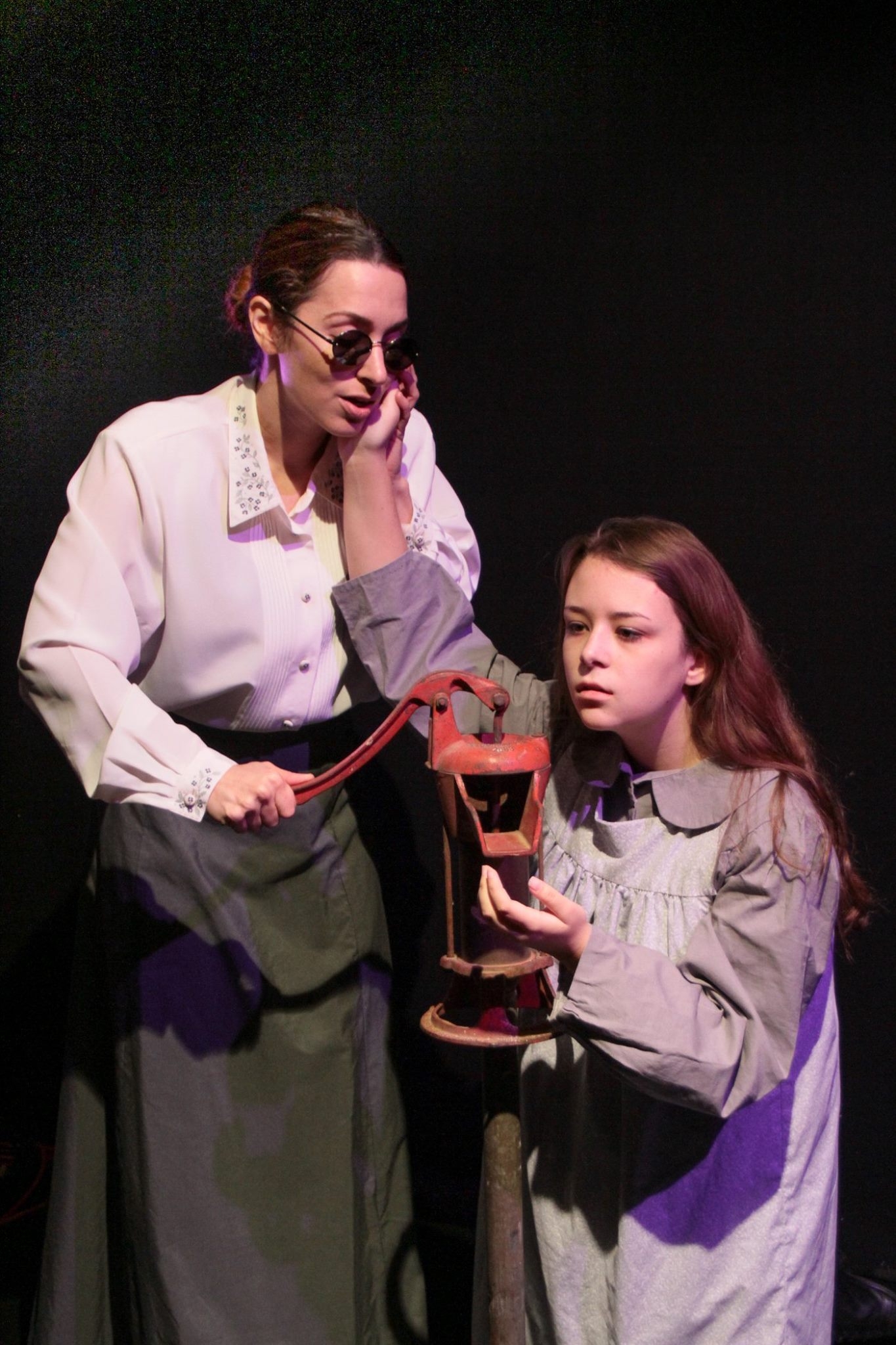In the mid-century American classic play “The Miracle Worker,” by William Gibson, the child Helen Keller punches, kicks, flings food, throws whatever’s in her clutches, pulls hair, screams, wails, and otherwise throws physical tantrums like a feral animal. She’s a brilliant yet obstinate, wildly spoiled child in her upper-class, post Civil War Alabama home in which all her kin are cousin to General Robert E. Lee. From a baby with enormous vitality to a deaf-mute child, she is pitied for her disabilities caused by illness, and since none of the finest quacks money could buy helped, her family nearly ruins her for any kind of productive life.
That is, until feisty young Annie Sullivan from Boston, a recent graduate of Perkins School for the Blind and formerly blind young woman herself, arrives as a live-in to teach the entire Keller clan a thing or two from the school of hard knocks. Life for her growing up in an asylum and losing everyone she loved was “always an Irish battle,” so she never shies away from fisticuffs, when needed, with Helen.
She enters the household like a storm with her Yankee pre-first wave feminist pluck, and fierce belief that “obedience is the way knowledge enters the mind of the child” and that for Helen: “there’s only one way out for you, and it’s language.”
In the sophisticated hands of Director Randy Wolfe and his very talented cast and crew at What a Do Theatre, “The Miracle Worker” offers the kind of engaging high drama that keeps audience members on the edge of their seats with subtle cues and messages about class. Though we all likely understand what happens after the play ends — that Helen Keller ultimately does evolve and grow to emerge as a brilliant writer and political activist as well as the first deaf person to earn a bachelor’s degree (from Radcliffe, no less) — the action, so utterly physical, as well as the dynamic dialogue amid clever technical choices draws us so fully into each moment, any background knowledge we do or don’t have has no bearing on the success of this moving production shot through with the powerful theme that love makes the impossible possible.
Made famous by Tony- and Oscar-winning performances by Patty Duke and Anne Bancroft, and based on Helen Keller’s autobiography, the action and dialogue, of course, comes to life through bold characters portrayed magnificently. At What a Do, Katherine Mumma is a stellar Annie Sullivan, as fiercely committed to the role as her character is to Helen, and her South Boston accent is impressively on the mark without being overdone. Grace Marengo is an astounding Helen, utterly convincing as not only deaf and blind, but as incredibly bright, manipulative and sweet. Their fight scenes are beautifully choreographed by Nick Mumma to feel utterly natural yet psychologically if not physically dangerous. These women have tremendous chemistry together and have clearly been directed with powerful nuance by Wolfe to build each scene, and the arc of the show overall, to impressive climax.
Other powerful performances abound, particularly from Madison Haywood as an utterly sympathetic Kate, mother to Helen; and Joe Mcleod as Helen’s father, a role he plays with greater emotional complexity than the role requires, raising the bar for the entire cast.
The excellent acting is supported by wonderful design elements, including Samantha Snow’s open set that clearly delineates several indoor and outdoor spaces with minimal changes as well as a functional water pump central to the major turn in the show. Snow’s lights also work beautifully with the set to effectively help create shifts in time, mood and tone. John Purchase’s original music and sound design create a cinematic through line for the drama that adds a special polished touch to the overall experience.
What a Do’s “The Miracle Worker” does, indeed, offer the kind of miracle everyone can get on board with this time of year, no religiosity or politics necessary. It’s about the complexity of our humanity, heightened, the best a classic drama can offer; and it is exactly what this excellent theatre excels at, offering it elegantly, as if a rare gift.
The Miracle Worker
What a Do Theatre
Dec. 1-17
whatado.org





